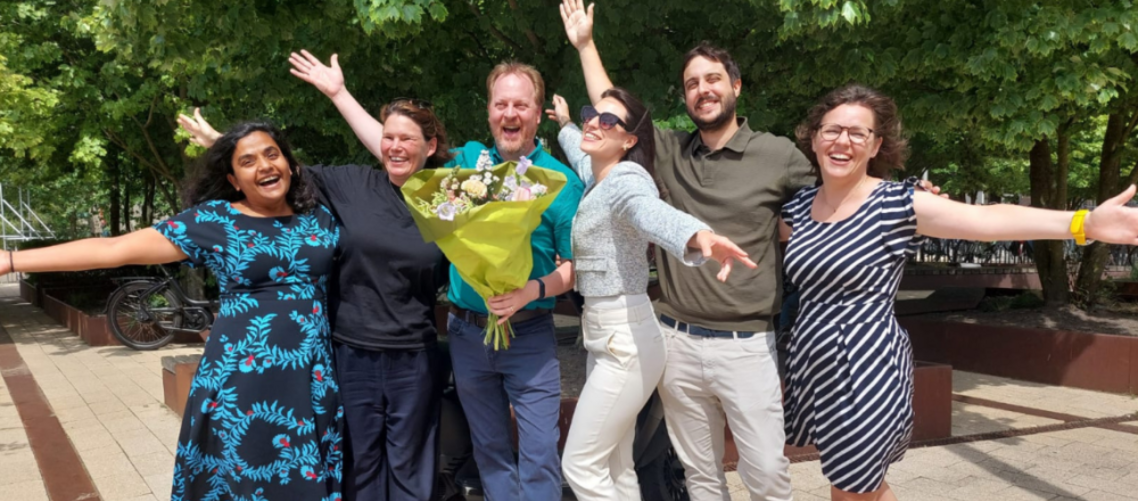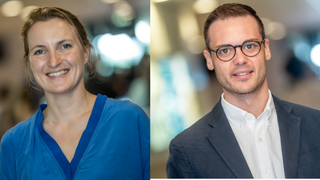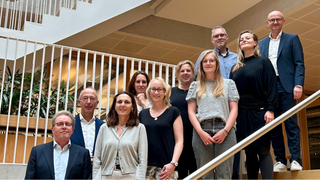In this four-year project, EUR researchers Doctors Jason Pridmore (ESHCC), Joao Fernando Ferreira Goncalves (ESHCC), Jovana Karanovic (RSM) and Professor Claartje ter Hoeven (ESSB) combine their cross-discipline expertise. Their goal: to provide valuable insights on how to create sustainable work environments that prioritise employee well-being and fulfilment in today's technological landscape. By drawing on their interdisciplinary knowledge, the EUR and RSM researchers offer essential perspectives on how to effectively empower workers and redefine workplace practices.
SEISMEC (Supporting European Industry Success Maximisation through Empowerment Centred development) embraces post-pandemic digitalisation changes and focuses on empowering workers by combining new technologies with human practices. Dr Jason Pridmore, coordinator of the SEISMEC project: “We are honoured to lead this great consortium of partners that demonstrate a diversity of organisational sizes, geographic locations and industrial ecosystems. As coordinators, this project will demonstrate the diversity of perspectives and expertise Erasmus University Rotterdam has as an organisation and how we can help lead Europe towards more and more human-centric approaches to work and our workplaces.”
Developing a human-centric workplace
SEISMEC’s approach is to make human centricity the centre point of its project. It’s a project that puts people's needs and experiences above a purely technical focus. By conducting multiple pilots across all industrial ecosystems identified within the European Single Market, including a cross-cutting platform-based pilot, SEISMEC wants to develop and demonstrate the concept of human centricity in diverse industry sectors and contexts. "I'm delighted that we'll examine platforms too,” tells RSM researcher Dr Karanovic. “Freelance marketplaces offer remote work potential but may foster biases. Our pilot aims to identify and address biases, creating an inclusive environment where everyone has an equal chance to succeed."
Aims for this project include empowering skilled workforces with human-centric solutions, addressing challenges tied to advanced workplace technologies, and fostering innovation through evidence-based recommendations. With these in place, the researchers want to see a connection amongst workers, policymakers and research initiatives. Dr Joao Fernando Ferreira Goncalves: "This is a great chance to integrate social sciences with industry and technology. We learned from Industry 4.0 that technology must involve people to succeed. Through SEISMEC, we'll use Erasmus University's knowledge to create industries and work that prioritise people. I believe this is just the start of many such initiatives."
“The project’s true strength lies in fostering collaborative innovation between companies and researchers, prioritising workers’ well-being,” continues Dr Karanovic. “Embracing AI advancements requires considering their impact on society. This project's purpose is collaboration and co-innovation for the benefit of the workforce and businesses.”
About Horizon Europe
Horizon Europe, the EU's flagship research and innovation funding program from 2021 to 2027, aims to enhance Europe's competitiveness through scientific advancements and innovation. It fosters collaboration, addresses global challenges and promotes the dissemination of knowledge and technologies.
The call for “HORIZON-CL4-2023-HUMAN-01-51: Pilots for an innovative human-centric industry (RIA)Opens external” focuses on a human-centric approach to industry, prioritising the changing role of workers.



